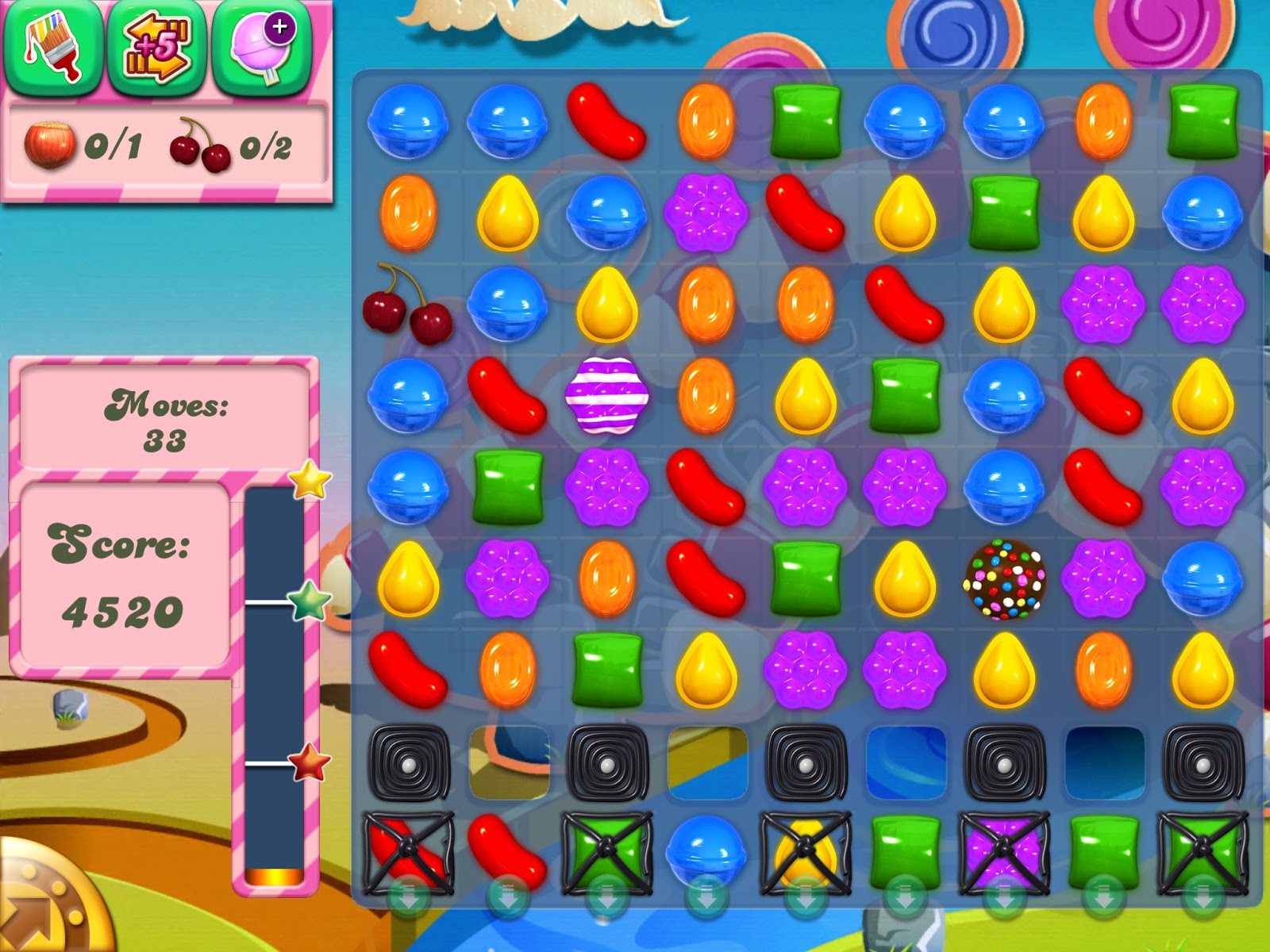Candy Crush Saga is a terribly addictive game designed to prey on the uncertainties of obsessive and compulsive people. If you possess little willpower or a stubborn determination to win, I urge you in the strongest possible terms never to download this monstrous app. You would be better off spending your time taking up chess or impossible bottle building, which both offer the solace of handling tangible objects.
The game involves manipulating candy on a screen to form rows, where the objects obliterate in a deceptively pleasing manner. The first ten levels are preposterously easy, feeling like a derivative form of Tetris or Bejeweled. But this is enough time for Candy Crush Saga to sink its cold steely talons into your sense of confidence. Because the levels after this become progressively more difficult. Sometimes you must ensure that objects from the top of the screen (“ingredients”) fall into their proper niches. Sometimes you need to make blocks of jelly dissolve by forming rows within these viscid masses. It’s a fairly stupid premise for a game, and yet the game ensnares you within its netting.
Soon you are using lives quite rapidly. Because each level has a limited number of moves. The game’s brilliantly treacherous way of making money is for a new life to replenish every thirty minutes. What this means is that you must wait once you’ve used up all of your lives. The other option is a Faustian bargain with your impatience: pay the ignoble ransom of 99 cents per life to get back in the game. Like many effective freemium applications designed to ensnare the closet addict, it requires tremendous willpower not to hand over your cash, your passport, or even your firstborn child.
This has proved quite profitable for the diabolical assholes who run this racket. It is estimated that they are raking in $850,016 each day. Gizmodo’s Ashley Feinberg was brave enough to write a confessional essay, pointing out that she has spent $236 on this game. That figure rivals a mildly out-of-control bar tab or a pleasant day at an affrodable bed and breakfast. I am sure that there are people in America right now excavating coins from the deep crevices of couches just to keep their Candy Crush Saga game going a little faster.
I wasted two hours of my life on Candy Crush Saga and I am still not quite sure why. The derivative music, badly looped, clanged inside my ears with all the subtlety of an army of percussion experts terrorizing me with a six gong battery. There are a few cut scenes involving an obnoxious girl who you are apparently collecting bits of candy for. I did not like this girl and did not understand why she required so much candy. Did she not have concerned parents? Perhaps some dentist who could steer her away from her dentine-destroying fixation? And yet I kept on going despite this poorly conceived narrative. You see, there’s this train that pulls you along from level to level. And I have always been very fond of trains. I hated the way the game preyed upon this affection.
Some outfit called King appears to be the software company responsible for this goddam game. I resent the cocky imperialism contained within the appellation. The company should have had the decency to call itself Scarface or Big Meech Flenory or Nixon. Because King has clearly adopted the business style of a smack dealer operating without honor.
There seems to be some consummate AI at work ensuring that the user will not win. Because if you are too slow or methodical, the game actually shimmers the wrong candy from time to time, suggesting that you move it. And because the game puts you into a narcotic state where you feel compelled to please it, you are constantly at war between the game’s slot machine-like aesthetic and your own rational thinking. There are psychedelic experiences that offer a more consistent state of being.
In the end, I was forced to uninstall the dreaded game. I began to imagine a future in which I was selling my body to feed my Candy Crush Saga addiction. Well, if one must become a puck bunny, then the stakes should be higher than shifting around animated candy.
